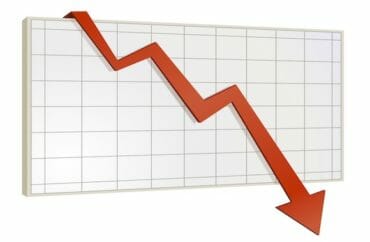
Stories abound of college graduates reading at 10th-grade levels, unable to complete basic mathematical equations, bereft of basic knowledge of history and economics and literature. But how bad is it really? And how much worse can it get?
In his book The Breakdown of Higher Education: How it Happened, The Damage It Does, and What Can be Done, John Ellis writes that “one study after another” has discovered that college grads “write badly, can’t reason, can’t read any reasonably complex material, have alarming gaps in their knowledge of the history and institutions of the society in which they live, and are in general poorly prepared for the workplace.”
In an excerpt of his book published at Minding the Campus, Ellis notes that, according to one study, higher education imparts “limited or no learning for a large proportion of students.” Many students move through their college experience without realizing “measurable gains in general skills,” he argues, with at least one broad survey of students showing “no statistically significant gains in critical thinking, complex reasoning, and writing skills” for nearly half of all students.
These students “didn’t just get dumber for no reason,” Ellis points out. The pedagogy of higher education is in large part to blame:
If graduates show serious ignorance of the history and political institutions of the society in which they live, that is exactly what one should have expected when campus requirements in American history and institutions and in Western civilization were abolished, and when there is so much faculty hostility to such courses. If graduates can’t even write short declarative sentences competently, that is not surprising when writing courses neglect the skill of writing and focus instead on radical politics, as they now often do. When graduates can’t read and extrapolate from books of any reasonable level of difficulty, that is just what one would expect when reading lists so often give them books written at the superficial level of journalism rather than more complex works that would really challenge them, as used to be the case. This is what happens when great books that have stood the test of time are abandoned in favor of politically correct simplemindedness.
If students have not learned to reason and to analyze, what else should we expect when they are so often asked simply to adopt a radical political viewpoint, instead of analyzing complex issues for themselves?…
Ellis argues that college educations “must provide…the analytical skill to dissect and evaluate ideas—any ideas.” Yet such an education “would not serve the interests of political radicals,” he notes, and is thus unlikely to be readily adopted.
IMAGE: Velli Sky / Shutterstock.com
Like The College Fix on Facebook / Follow us on Twitter




Add to the Discussion